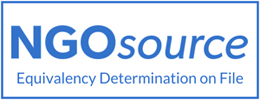Funded by
Oxfam
Document
–
Budget
IDR. 1.220.026.697
Period
July 01, 2023 – June 30, 2024
Description
The threat of an energy crisis haunts the sustainability of economic development both on a global scale and in Indonesia. Fossil energy resources, such as oil, natural gas and coal, which have been the mainstay in meeting energy needs in Indonesia, have limited stocks. On one occasion, the Minister of Energy and Resources mentioned that if energy consumption is at the current level and continues to increase, Indonesia’s energy reserves from fossil fuels will run out in the next 15 years. According to the International Renewable Energy Agency (IRENA), it is estimated that the total potential of renewable energy in Indonesia reaches 3,692 gigawatts (GW). Meanwhile, according to Indonesia Energy Outlook 2019, the total potential of renewable energy equivalent to 442 GW is used for power generation, while biofuel and biogas of 200 thousand Bph are used for fuel purposes in the transportation, household, commercial and industrial sectors. The utilisation of renewable energy for power generation in 2018 was 8.8 GW or 14% of the total power generation capacity (fossil and non-fossil) of 64.5 GW.
The government has established an energy mix policy in Indonesia to encourage accelerated utilisation of new and renewable energy. Through Government Regulation No. 79 Year 2014 on National Energy Policy, the target of new and renewable energy mix in 2025 is at least 23% and 31% in 2050. In addition, the government also issued No. 112 of 2022 on Accelerating the Development of Renewable Energy for Electricity Supply in accelerating the clean energy transition through stopping the operation of coal-fired power plants by 2030.
However, the energy transition is faced with challenges to access cheap, affordable and reliable clean energy, especially for women and other vulnerable groups. Mainstreaming Gender Equality, Disability, and Social Inclusion (GEDSI) needs to be encouraged in an adequate regulatory framework so that the energy transition does not have a negative impact on women, children, and other vulnerable groups.
Through the Indonesia Transformative and Just Energy Transition (I-JET) Project, an initiative project that encourages the involvement of women, people with disabilities and other vulnerable groups in Indonesia’s equitable energy transition. The goal is that by 2028, women and people with disabilities will benefit from and lead a just and transformative energy transition. This project encourages the JET process in Indonesia to meet the interests and needs of women and girls, including people with disabilities and marginalised social groups, and not have a negative impact on women and girls.
This will be achieved through a partnership model between the government, private sector and communities. CSOs and WROs will provide support to communities to engage and participate meaningfully in the energy transition in West Nusa Tenggara and East Nusa Tenggara. While the private sector will be encouraged to create a better market system in a gender-equitable energy transition business model.
Funding
This program is supported by Oxfam, period July 01, 2023 – June 30, 2024 with a total funding support of IDR. 1.220.026.697,-






